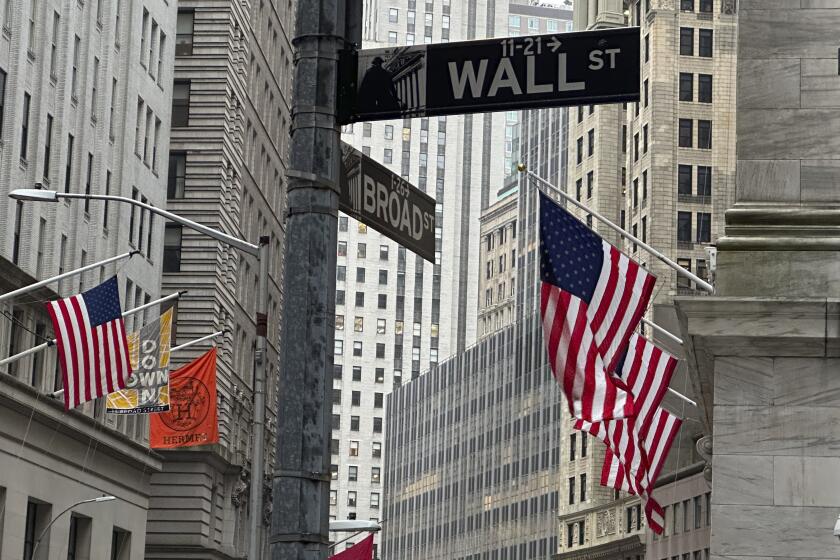U.S. Ills Help Pull Peso to Record Low
What ails U.S. markets also is taking a heavy toll on Mexico’s currency and interest rates.
The Mexican peso plunged Tuesday to an all-time low after a grim U.S. consumer confidence report raised the specter of weaker spending -- which could be troubling news for Mexico, the second-largest U.S. trading partner.
The peso ended at 11.05 per dollar versus 10.99 on Monday. The currency has lost more than 6% of its value this year after sliding 13% last year.
As the peso erodes, investors are demanding higher interest rates on Mexican treasury bills, or cetes. Foreign investors want higher rates to make up for the currency devaluation. Domestic investors want to be paid more to compensate for the risk of higher inflation as the weak peso raises prices of imported goods.
The yield on 28-day cetes auctioned Tuesday rose to 9.3% from 8.9% a week earlier, the government said.
The Mexican central bank has cut the amount of credit available to commercial banks three times in the last three months in a bid to raise interest rates to shore up the peso and slow price increases. Currency declines also add to the cost of the country’s $76 billion in foreign debt.
The risk of a stumbling U.S. economy is a big danger for Mexico because 90% of the country’s exports go there. “The weak global economy and U.S. consumer demand has a knock-on effect in Mexico,” said Clyde Wardle, currency strategist at HSBC Bank in New York.
The Mexican economy grew by just 0.9% last year, in large part because of sluggish U.S. demand.
Often, a nation’s currency will weaken with its economy because foreigners see fewer investment opportunities in struggling economies.
Rising inflation also can discourage investment. Consumer prices in Mexico rose 5.7% last year, up from 4.4% in 2001.
Some analysts said worries about a split between Mexico and the United States over the latter’s policy toward Iraq also may be hurting the peso. Mexican President Vicente Fox has signaled he may use his country’s United Nations Security Council vote to oppose a U.S.-led attack on Iraq.
The weaker peso has a good side: It makes Mexican exports cheaper for foreign buyers and makes the country less expensive for foreign vacationers.
But a continuing devaluation would cut the purchasing power of average Mexicans.
The main Mexican stock index slid 0.8% to 5,869.21 Tuesday. It is down 4.2% this year, compared with a 4.7% drop in the U.S. Standard & Poor’s 500.






